wrestling / Columns
The Magnificent Seven: Wrestling’s Top 7 Unsung Heroes
There are different kinds of professional wrestling fans. Fair weather fans who may not realize that there were world champions in between Hulk Hogan and Steve Austin. Average Joe fans who take the product at face value and more or less remember what WWE wants them to remember. Hardcore fans—which probably encapsulates you if you’re reading this column—who study the history of the business and follow multiple promotions at a time.
I’m oversimplifying and there are plenty of shades of gray between the broad strokes of these categories. My point in bringing up these groupings, though, is that there is a relatively small swath of the pro wrestling watching masses that give much thought to stars of yesteryear, particularly if they didn’t frequent the main event scene or do something revolutionary in the mid-card. This week’s column is a tribute seven truly special acts that are too-often forgotten by fair weather and “average” fans, but that nonetheless made important contributions to advance the business or quietly built remarkable bodies of work.
I’ll preface the list by saying that the countdown format is severely flawed in this case. Just who qualifies as unsung, forgotten, or underrated will vary based on the sphere of your fanship, your generation, who you talk to, which message boards you frequent, etc. and arguing over who is most unjustly underrepresented quickly spins into debates over semantics and a strange mix of kayfabe and shoot elements that we’ll never fully reconcile. So, in considering this column, I urge you to look at it as a snapshot of seven acts that don’t get the attention they deserve, and feel free to weigh in with your own unsung heroes in the comments section.
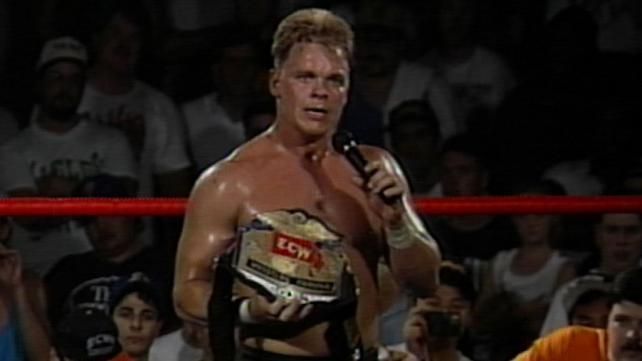
#7. Shane Douglas
“The Franchise” may not have, objectively, ever been a truly appropriate nickname for Shane Douglas, a mid-carder who only broached the main event in small promotions (e.g., ECW on the cusp of its popularity really blowing up). Douglas probably should have been a bigger deal.
Why? For starters, let’s consider the most iconic moment of his career—winning a tournament to capture the vacant NWA World Heavyweight Championship and proceeding to cast it down and reject all of its tradition in favor of christening himself the first Extreme Championship Wrestling world champ. Yes, Paul Heyman booked the moment, but Douglas delivery gave the moment fire, and his credibility as a skilled professional wrestler, built via tours of WWF and WCW, gave the moment a sense of legitimacy.
Douglas would go on to additional runs in the upper mid-card of WWF and WCW, as teacher Dean Douglas and as a player in the New Blood faction opposite Ric Flair and the Millionaire’s Club, respectively, and he would later lend some veteran cred to the early years of TNA.
Based on his skills as a performer and accomplishments in the ring, Douglas should probably be a fringe Hall of Famer, and yet he never really comes up in those conversations. Just the same, his name is one worth remembering when we talk about the history of professional wrestling.
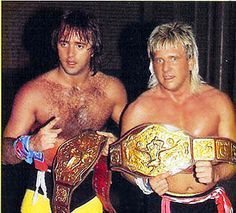
#6. The Rock N Roll Express
When contemporary wrestling fans talk about history’s greatest tag teams, names like The Legion of Doom, The Dudley Boyz, The Hardy Boys, The Steiner Brothers, and Edge and Christian tend to rise to the top of the list. Others will tout The Rockers for being ahead of their time or The Hart Foundation for their perfect mix of technical skills and raw power.
The Rock N Roll Express isn’t forgotten. Hardcore fans will find a place for them on their short lists of best tag teams and, well, it’s hard to completely forget about a team when, 30 years after their inception, they still make the occasional appearance on the indy circuit.
All that said, on account of having been an undersized team in a time of giants, because they only had a cup of coffee in the WWF, and because the peaks of their careers missed both the Rock N Wrestling and Attitude Eras, the everyday fan tends not to give this duo the attention they deserve.
Make no mistake about it—The Rock N Roll Express is one of the greatest tag teams of all time. From Mid-South to Jim Crockett to Smoky Mountain Wrestling, they were over enough to flirt with the main event as a tandem, warring with The Midnight Express, The Horsemen, the tandem of Ivan Koloff and Krusher Khrushchev, The Heavenly Bodies, and a host of others. They were fiery, exciting babyfaces. Perhaps even more importantly, Ricky Morton’s capacity to sell and Robert Gibson’s capacity to work the hot tag made them icons and trailblazers in the tag ranks, to the point that plenty of folks in the business still refer to the heat segment of a tag match as the face “playing Ricky Morton.”
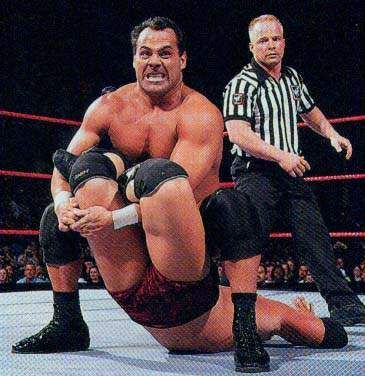
#5. Dean Malenko
Dean Malenko arrived at the prime of his wrestilng career at exactly the right time to be a memorable figure for serious fans, and yet at just the wrong time to get the main event run he probably deserved.
Eddie Guerrero. Chris Jericho. Rey Mysterio. Chris Benoit. Putting aside the stigmas attached to that last performer, these guys shared a bond of being undersized and uber-talented. They each got more of an opportunity than they might have had a decade earlier, on account of The Monday Night War and WCW investing in its cruiserweight division. And each of these men made an unlikely rise out of the cruiserweight division, through the mid-card, and to the very top of the wrestling business. Consider this: every one of them walked out of a WrestleMania with a world championship in his hands.
And then there’s Malenko. The Man of 1,000 Holds had fantastic programs and stand-alone matches with each of the individuals listed above. While he wasn’t gifted on the mic, nor was he meaningfully less talented than Mysterio or Benoit in that category, and he performed at every bit the level of these other four performers in the ring.
So Malenko had a memorable run atop WCW’s Cruiserweight division and WWF’s Light Heavyweight ranks, and even had a brief run with the US Championship in WCW. And while his skills as a technician were always elite, he was probably the very best performer from his informal cohort to not ever get a meaningful shot at the main event or a world title. It’s telling that his greatest accomplishment may have been the odd-ball choice for Pro Wrestling Illustrated to buck kayfabe and celebrate the man’s work by placing him in the number one spot of its 1997 PWI 500 ranking.
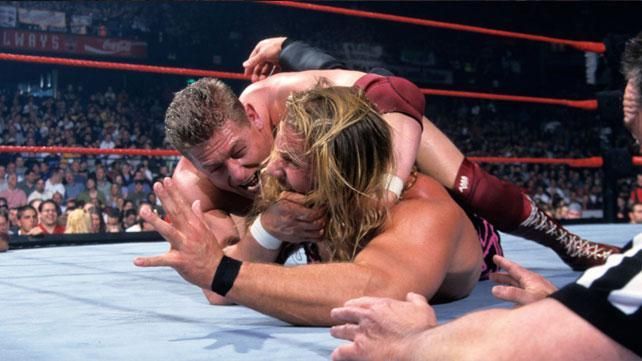
#4. William Regal
I’ve read William Regal’s book, heard him speak live, and listened to him on podcasts. Still, each time I hear part of his life story I feel captivated. He’s that rare figure in wrestling who takes complete responsibility for his own transgressions, doesn’t have a big head about his accomplishments, and has genuinely keen insights about his peers (give a listen to his blurbs in countless WWE-produced documentaries, or notice how careful, tactful, and on point he was in paying tribute to Chris Benoit before the details of his final days went public).
So we take a guy with wisdom, interesting life experiences, and a level-headed attitude–then factor in that, as an all-around performer, he’s quite arguably one of the top twenty-five wrestlers of the last twenty-five years. But he was never a world champion. He never had more than a cup of coffee in the main event. And though he may one day find his way into the Hall of Fame, he’s not exactly shoe-in.
The trouble with Regal’s legacy is all about personal indiscretion and timing. In his personal life, Regal had all manner of what would now most tactfully be called wellness violations, which more or less killed his first WWF run before it got started and ultimately crippled what may have been the highest profile run of his career when he was both the Raw GM and won the 2008 King of the Ring tournament. In terms of timing, had he come to wrestling twenty or thirty years earlier, I theorize his technical ability may have garnered him all the more recognition, just the same as his less than chiseled physique wouldn’t have barred him from superstar status.
None of that changes Regal’s undeniable talents as a technical wrestler, a stiff brawler, an elite promo man, and someone with a unique combination of tools that allowed him to work as both a serious and comedic wrestler with equal skill. He’s a truly special talent who too often gets overlooked.
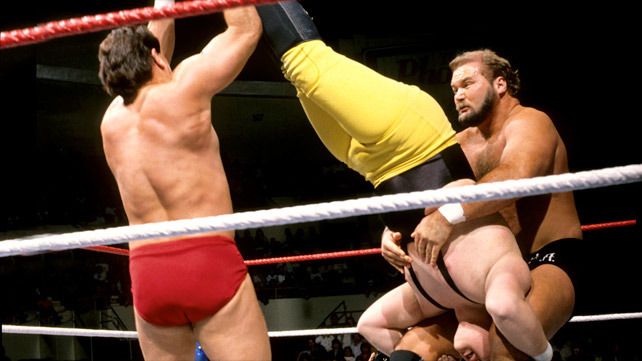
#3. Arn Anderson
It’s hard to be recognized as a superstar when you spend much of your career standing right beside Ric Flair. Indeed, in kayfabe terms, Anderson will probably go down in most fans’ eyes as Flair’s loyal henchman, a tag team specialist, and a perennial mid-carder. None of these descriptors are objectively false, but all of them feel out of place when describing a talent as special as The Enforcer.
Anderson was big. The oftentimes muscle of the Four Horsemen was never the physical specimen of a Lex Luger or Sid Vicious, but he was just the same deceptively powerful and intimidating presence to back up slicker showmen like Flair and Tully Blanchard. Anderson was also as sound of a worker as you’ll find—technically proficient, able to mix it up in a brawl, and capable of near peerless timing in interfering in a match or breaking up a pinfall for his tag partner of the day. And on top of all of that, he repeatedly demonstrated a unique mind for the wrestling business and skills on the mic. For evidence of all that, look no further than Anderson naming The Four Horsemen on the fly—his throwaway promo about four guys reeking havoc on the Jim Crockett Promotions roster establishing what was arguably wrestling’s most iconic stable.
Today, WWE has demonstrated brilliant judgment in continuing to employ Anderson past his days as an active performer, now as an agent to help younger talents figure out matches and promos. In a perfectly fair world, he may have had a meaningful run or two at the main event level as a singles performer, rather than a part of the Horsemen machine. At least today we can rest assured he’s helping to build future main events.
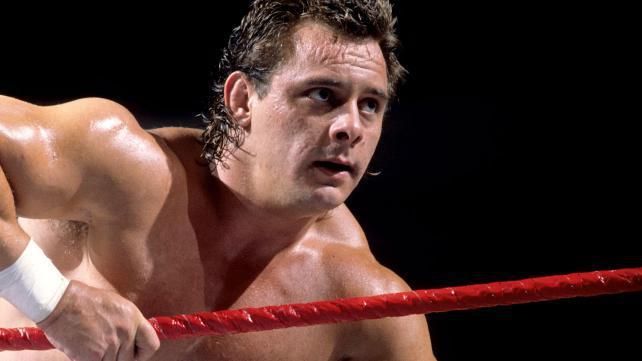
#2. Dynamite Kid
By most accounts, Dynamite Kid was an asshole. He bullied other wrestlers physically, verbally, and with mean-spirited ribs before he was forced to retire due to injuries and became a bitter old man, resentful of the successes of the performers who outlasted him in the business. Dynamite isn’t on the long list of wrestlers I’d love to sit down and have a beer with. But that doesn’t change the fact that he was one of the greatest workers of all time.
Dynamite Kid had his biggest successes as a singles performer in Stampede and New Japan, merging different styles to arrive as an innovative wrestler who worked at a frenetic pace and expected nothing short of perfection from himself and his peers. He proceeded to have excellent matches with the likes of Bret Hart and Tiger Mask.
The general populace of US wrestling fans, however, may only remember Dynamite for his tag team work with Davey Boy Smith, wrestling as The British Bulldogs. Sure, the team was great, but just the same tends to get forgotten alongside main event acts like Hulk Hogan, Andre the Giant, and Randy Savage, and tag teams that outlasted or followed them, like The Hart Foundation, Demolition, and The Rockers. Similarly, when Dynamite’s body wore down and he faded from the spotlight in the late 80s, Smith copyrighted The British Bulldog name and continued to use it as a singles star who rose to fringe main event status over the decade to follow, while Dynamite receded further and further from the general public’s memory. Dynamite Kid is one of the greatest workers of all time, and it’s a shame so few fans place him in those elite ranks.
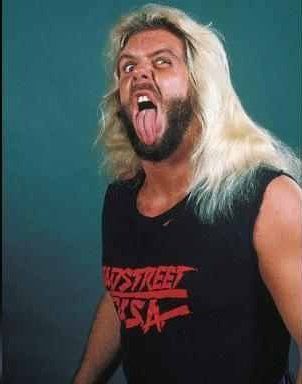
#1. Michael Hayes
Contrary to a figure like Dynamite Kid, it’s tough to argue that Michael Hayes was in the truly elite tier of greatest workers of all-time. But the man was (and is) a bona fide wrestling genius.
Have you ever stopped to notice how many wrestlers sing or meaningfully contribute to the creation of their own entry music? You can thank Michael PS Hayes for that movement. Dig three man units that team men of distinctive talents, such as The Shield? You can thank Hayes and The Freebirds. Like The Stone Cold Stunner? Hayes gave Austin the idea.
Hayes was masterful on the mic and, as the examples above suggest, a mastermind when it came to innovating on the professional wrestling canvas. By his own account, Hayes came to the WWF in the late nineties expecting to thrive as a veteran singles wrestler, putting to use all of the lessons he had learned over the preceding decades on his biggest national stage to date. Vince McMahon had other ideas and clipped Hayes’s in-ring career short by sending to a broadcasting and managing role, from which he transitioned to the creative side of the table, and has been a lead booker and writer ever since.
Hayes was never a world champion. He never had a WrestleMania match. He was never a truly great in-ring worker, nor a remarkable physical specimen. But he was creative, provocative and far more influential than he’ll probably ever get full credit for being. For all of those reasons, I rank him as wrestling’s greatest unsung hero.
Who do you think of as wrestling’s great unsung heroes? Let us know in the comments section. See you in seven.
Read stories and miscellaneous criticism from Mike Chin at his website and his thoughts on a cappella music at The A Cappella Blog. Follow him on Twitter @miketchin.







